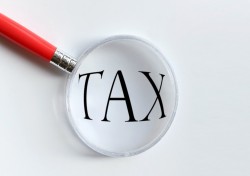Tax Debt Concerns In Bankruptcy
:
Filed under: Taxes
 As tax season approaches you may be growing concerned about how you are going to pay any taxes that you might owe. Whether you are coming into acquiring tax debt or have been dealing with unpaid taxes for a while, there are solutions.
As tax season approaches you may be growing concerned about how you are going to pay any taxes that you might owe. Whether you are coming into acquiring tax debt or have been dealing with unpaid taxes for a while, there are solutions.
Outside Of Bankruptcy
The IRS offers a few programs to help you resolve your tax debt problems. An Installment Plan can spread out your tax debt payments over a period of time to lower your monthly payment amount. If you cannot afford to repay the total debt owed, you may be able to settle your tax debt for less than what is owed in the Offer In Compromise program. However, it is important to note that there are no guarantees the IRS will work with you and you may be at risk of wage garnishment or other consequences.
Inside Of Bankruptcy
You may have heard that tax debts are not dischargeable in Dallas bankruptcy. This isn’t necessarily true. While there are some guidelines for the eligibility of tax debt in bankruptcy, most debtors find that they can resolve their liability in a Chapter 7 or Chapter 13 bankruptcy.
In order to have most of your tax debt discharged in a Chapter 7 bankruptcy, your income must pass the means test and your debts must be (a) an income tax, (b) three year past due return, (c) filed return at least two years ago, (d) have debt assessed at least 240 days ago, and (e) no attempts to defraud or evade payment on the debt.
In order to have your debt discharged in a Chapter 13 bankruptcy you will be required to repay a majority of your tax liability as part of your repayment plan. Tax debts are considered priority debts, which means that the IRS will receive the largest portion of your monthly repayment plan payment until the debt is satisfied as outlined by the court, while other creditors will receive a smaller portion. Upon completion of your repayment plan in three to five years, your tax debts will be considered satisfied.







